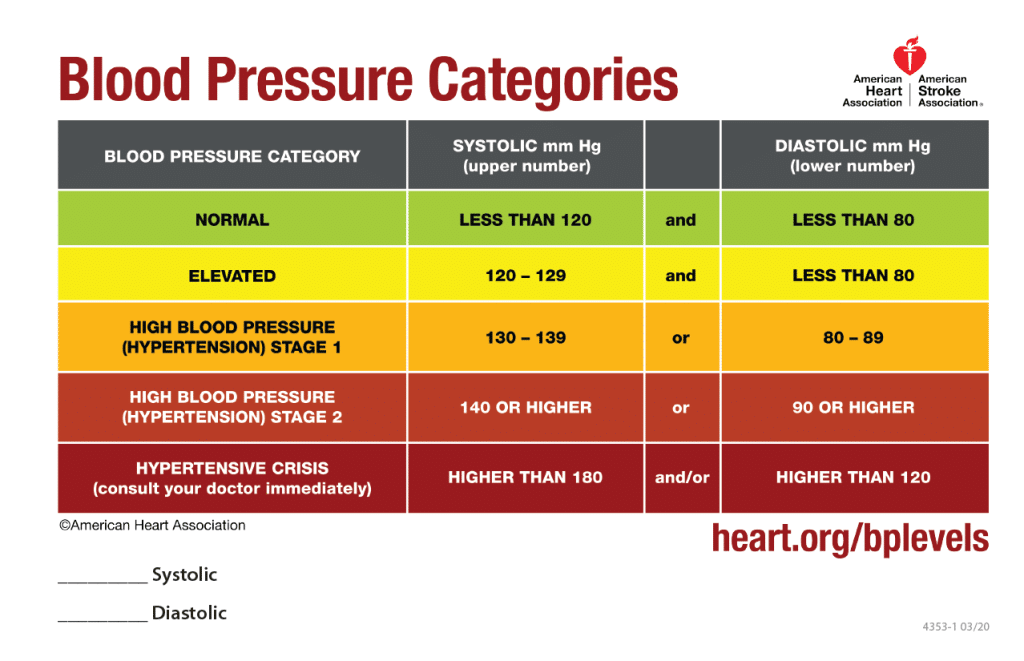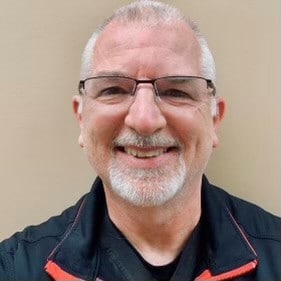
Young adults in their 20s sometimes fail to consider certain health risks that can typically be associated with the aging process, such as blood pressure levels. However, young adults should try to be mindful of blood pressure levels from an early age because high blood pressure poses risks to people of all life stages. In order to decrease these risks, it’s imperative young adults understand what the numbers associated with blood pressure levels mean and how blood pressure affects overall health.
Blood pressure is composed of two numbers and comes in the form of a fraction. Systolic blood pressure (the first/top number) – indicates how much pressure your blood is exerting against your artery walls when the heart beats. Diastolic blood pressure (the second/bottom number) – indicates how much pressure your blood is exerting against your artery walls while the heart is resting between beats. Depending on what range of numbers your blood pressure falls in, you may be at low, moderate or high risk for high blood pressure.
The five levels of blood pressure include:
- Normal: 120/80 mm
- In this stage, it is recommended to proceed with heart-healthy habits such as regularly exercising and a balanced diet to maintain a healthy “normal” blood pressure level.
- Elevated: 120-129 systolic and less than 80 mm diastolic
- In this “in-between” stage, blood pressure is not high yet, but there is a slight increase in risk since it is over the normal level. It is advised to start taking preventative measures against high blood pressure if one has not begun to do so already.
- Hypertension Stage 1: 130-139 systolic or 80-89 diastolic
- This stage involves doctors recommending lifestyle changes and/ or medication to reduce your risk for cardiovascular diseases and complications such as heart attacks and strokes.
- Hypertension Stage 2: 140/90 mm or higher
- During this stage of high blood pressure, doctors will likely try to combine both medication and a variety of lifestyle changes to reduce high risk for cardiovascular disease.
- Hypertensive Crisis: 180/ 120 mm
- This stage requires immediate medical attention. If you suspect that your blood pressure is within this range, it is recommended to check blood pressure again after a few minutes and call 911 immediately if it’s still too high. This stage of high blood pressure can result in organ damage, chest pain, weakness and more during the period when blood pressure is extremely high.

Depending on the initial cause(s) for high blood pressure, one’s form of hypertension will fall into one of two categories. These categories include:
- Primary hypertension: with this form, high blood pressure is developed over the span of a couple of years and is most often the result of a lifestyle change, environmental factor or throughout the aging process. A few causes of primary hypertension include:
- Environmental – One major environmental cause is high levels of stress as stress has physical effects such as strain on the human body.
- Aging – high blood pressure becomes more common for adults 50 years and older. This is due to factors, such as increased stiffness of large arteries and plaque buildup in arteries.
Obesity/ poor diet- Poor diet plays a huge part in keeping your blood pressure at a normal level. Many cases of primary hypertension are the result of unhealthy eating habits including a large amount of salt intake or fatty foods.
- Smoking and high alcohol consumption- alcohol and tobacco contain chemicals that can lead to increased risk for cardiovascular diseases, so it’s best to limit the intake of them.
- Unhealthy lifestyle habits – these habits may include lack of exercise/ physical activity or sitting around a lot. It is especially important to be mindful of your exercise patterns if you are at a higher risk for carotid artery disease as low exercise levels can factor into increased risk for the disease as well.
- Secondary hypertension: this form of high blood pressure is typically caused by health problems or certain medications. A few specific causes include:
- Diabetes
- Kidney issues
- Sleep apnea
- Birth control medication
What are the symptoms of high blood pressure, especially in young adults?
While symptoms vary from person to person, a few common symptoms to be aware of are headaches, fatigue, confusion, personality changes and irritability. If left untreated, these symptoms may lead to more serious health conditions such as:
- Heart attack
- Stroke
- Heart failure
- Hypertensive crisis resulting in other issues such as organ failure, pain/weakness, blurry vision and memory loss.
A few ways to prevent high blood pressure include:
- Exercise regularly. Government and health organizations recommend 150 minutes of exercise weekly to reduce health risks and prolong life spans. Additionally, exercise has been proven to improve mental health and reduce stress which is another factor associated with high blood pressure.
- Manage your stress. Removing stress or stressful factors from your life is not always easy, but there are a variety of simple ways to boost your mood including exercising, spending time doing hobbies, and finding ways to relax and recharge.
- Maintain a healthy diet and attempt to reduce salt intake. Large amounts of salt increase the risk of high blood pressure.
- While you’re young, it’s best to start taking steps early on to reduce risks associated with high blood pressure.
Don’t wait to start taking steps to prevent high blood pressure. If you suspect you may already be experiencing high blood pressure, we recommend following the above tips or consulting with one of our UofL Health – Primary Care providers for additional heart care and treatment options. If we take care of our bodies, they will take care of us!









